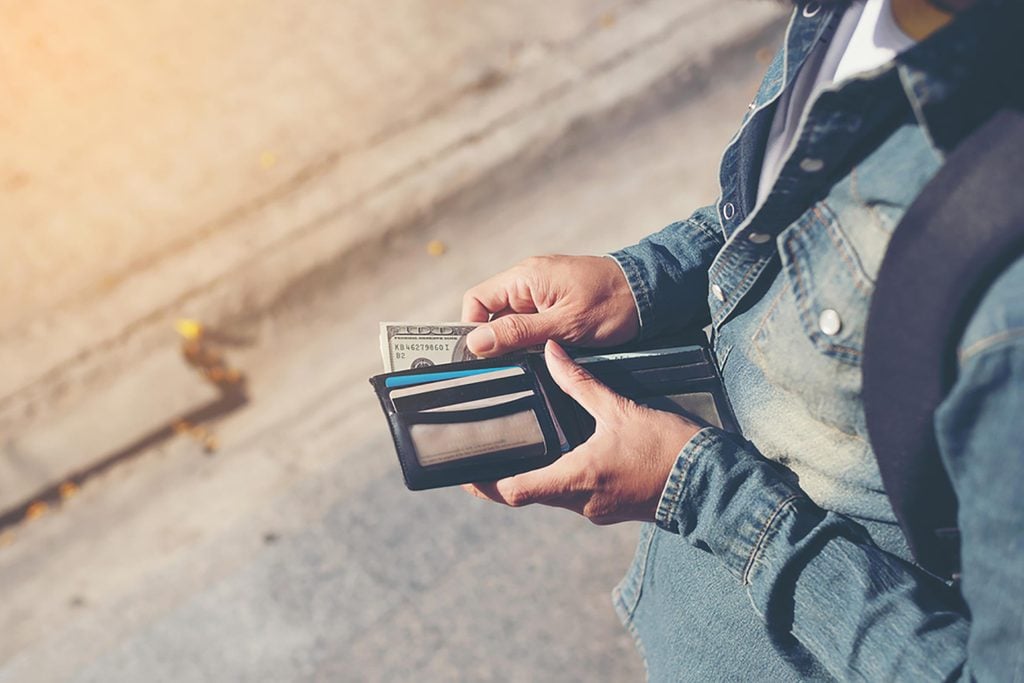If You Forget to Wash Your Hands After Touching Money, This Will Convince You to Stop
Updated: Oct. 29, 2021

This gives a whole new meaning to the term “dirty money.”
Forget library books, toilet seats, and public doorknobs—they’re no competition for the cash sitting in your wallet right now. While most of us don’t think about washing our hands after touching money, a 2019 study found that coins, cash, credit and debit cards are some of the germiest things you can come into contact with. In addition, here are some other germ-spreading items you’re probably carrying.
To find out just how dirty our various forms of payment are, a team of researchers from LendEDU used a scientific device that tests for bacteria on a given surface. They tested 41 different credit and debit cards, 27 different bills, and 12 different coins, and noted down the average germ scores of each item. The higher the germ score meant the dirtier.
What would you guess would be the dirtiest of payment methods? If you answered cash, you’re mistaken. While at the end of the study cash had a germ score of 160, credit/debit cards had a score of 285. Coins, on the other hand, had the lowest average germ score of 136. (For reference, it is recommended that a food establishment surface should have a germ score of 10 or less.) The reason? While cash stays in circulation a lot longer and can travel across the country by changing hands, debit cards are actually the most commonly used payment method today.
This, of course, does not mean cash is that much safer. According to a 2014 research from Mastercard and the University of Oxford, the average bank note is home to 26,000 types of bacteria including E. Coli.
“Keeping money clean is going to be difficult particularly when you’re using it day-to-day. With cards, it is, however, worth wiping them semi-regularly,” Sean Perry, founder & director of Neat Services, tells LendEDU. “But the best advice is just to make sure you wash your hands regularly throughout the day, and particularly before and after eating. And, washing your hands after eating will mean a reduced chance of any food debris going back onto the money once you finish.”
By the way, there are plenty of germ-ridden spots in your hotel room, too.
